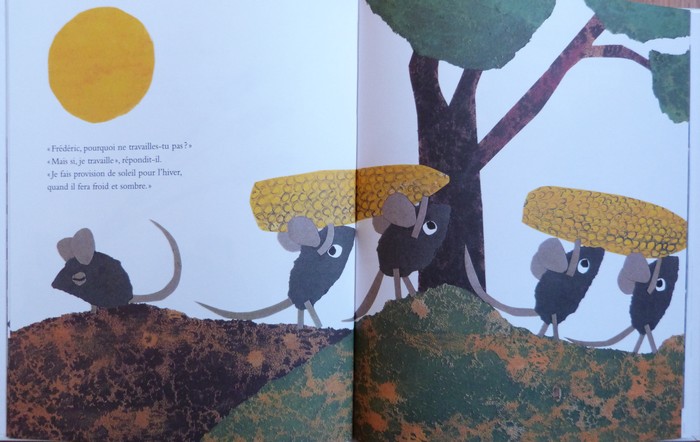

He’s not lying around dreaming, he says, but “gathering words” for when the mice run out of things to say.


When the other mice complain, he tells them he’s gathering colors because “winter is gray” and sun rays for “cold dark winter days,” insisting all the while that he is working.

But one mouse, Frederick, doesn’t appear to be doing anything but staring out at the meadow. Each mouse does a job-gathering and storing food, preparing their home for the cold. I’m speaking about creativity.”įrederick follows a small community of field mice as they prepare for the coming winter. Like most good solutions it requires a trait that is distinctly human. “There is a solution,” writes Dustin Timbrook, Media Director of Lowe Mill ARTS and Entertainment, “and it doesn’t involve tired, useless attempts at suppressing technology. Why is this logic sound? If information is readily available and jobs are replaced by technology, individual workers will need to set themselves apart and/or develop new types of work via what’s known as creative destruction. These articles-written by educators, economists, and futurists-refer to the job market my kids will enter as a “post-work” world and suggest that simply knowing things and being skilled at something will not be enough to make individuals competitive in emerging job markets. Turns out, neither guess was completely correct. I wasn’t sure whether it meant that jobs in the arts would be on the rise (hard to imagine), or employers would be hiring more workers with creative skills (not as hard to imagine). (A few examples can be found at The New York Times, on Medium, and at The Atlantic.) What does this mean? I initially wondered, admittedly leery about reading another article that would make me feel like I’m shorting my kids. Predictions that creativity will be the next generation’s most valuable skill keep popping up. Though published in 1967, the Caldecott Honor recipient remains a favorite in our family not only because of its visual appeal, but also because of its emphasis on the value of creative work and community interdependence. Inspiration Leo Lionni’s Frederick & Creativity in a Post-Work WorldįebruI’ve read Frederick by Leo Lionni to my kids almost as many times as I’ve read Goodnight Darth Vader and James Kochalka’s Glorkian Warrior books.


 0 kommentar(er)
0 kommentar(er)
